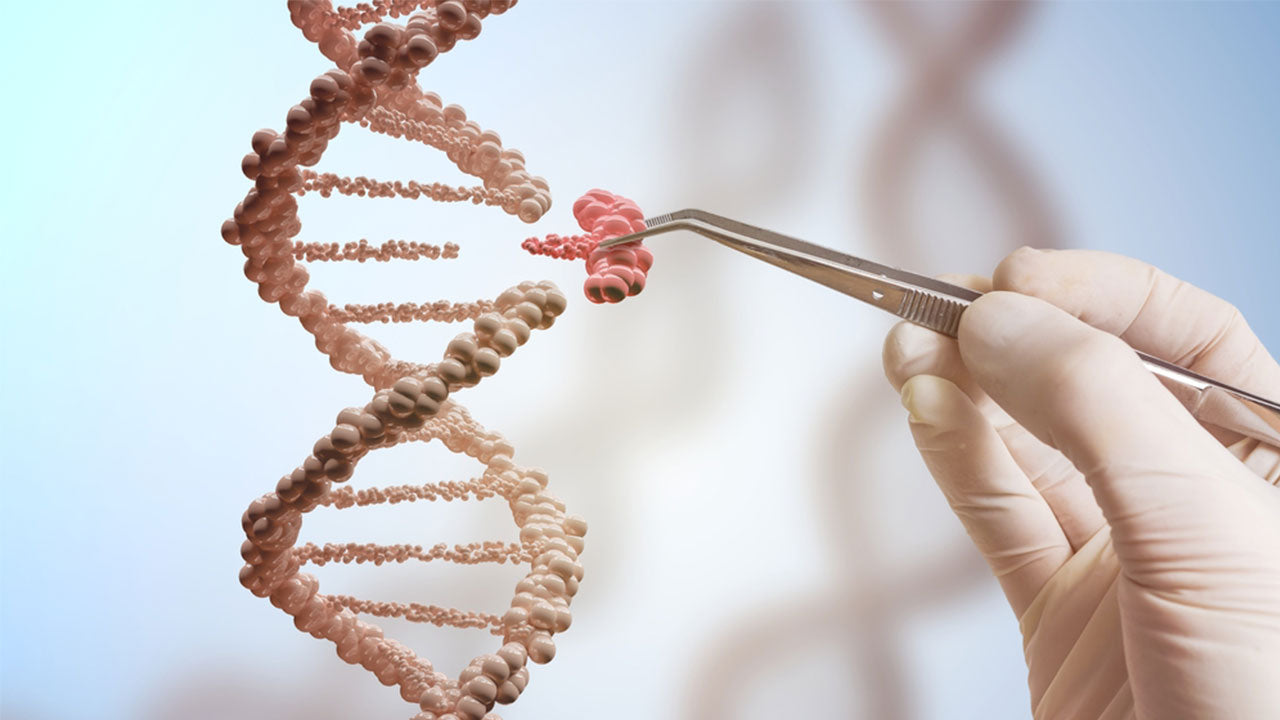How to Live Forever: The Latest Longevity Science
 By: by Amino Science
By: by Amino Science

The average human lifespan gets longer every year as medicine and disease control advance. Not only that, but anti-aging support improves each year too, with today's Hollywood stars looking younger in their 70s than stars in their 50s appeared in the Golden Age of film. As scientists and researchers work to reverse the aging process and extend life expectancy, the inevitable question becomes: how to live forever? Is it possible, is the science any closer, and does the human body/spirit have the ability to endure eternal life? Here's a breakdown of the most current breakthroughs in longevity science.
Interest in Immortality
From vampiric legends of old to science fiction fantasies of the future, human interest in life extension stems from a love of life and good health that is often coupled with a fear of old age and death.
The aging process affects everyone differently and in a lot of ways it's one thing that money can't exempt you from: billionaires in Silicon Valley are just as susceptible to age-related diseases as remote farmers in Third-World nations. In just this last year the Guinness World Record committee confirmed Kane Tanaka of Fukuoka, Japan as the world's oldest person at 116 years old at her time of death, discounting perhaps the previously believed lifespan of Jeanne Calment of Arles, France, who purportedly lived to be 122 years old. Still yet to be verified are the rumors that Sodimedjo of Indonesia may have lived to 146.
Rumors abound surrounding mortality, including that the average lifespan used to be more like 40 years of age instead of 80. That assumption is due to the keyword "average"—when infant mortality and death during childbirth were more common, the average human lifespan was lower, and yet otherwise healthy people who lived to adulthood also lived into their 60s, 70s, 80s, and 90s, just as we modern humans do with enough good health and good fortune.
So: once we dispel legend and myth, what can we mere mortals do to actually live forever?

How to Live Forever: Advances in Longevity Science
Here are the top areas of scientific exploration into human life extension and the real quest for immortality.
Genetic Engineering
Genetic engineering is the manipulation of DNA molecules to modify a living organism. This includes genetically modifying foods and crops, like GMO bananas that have been successfully bred to be larger fruits with smaller seeds, more disease-resistant, and higher in vitamin A. Biofortified foods exist with carrots, onions, rice, and more, but these same genetic manipulations can apply to humans too.
Genetic instability is one of the primary causes of human aging. Specifically, our DNA replicates in order to sustain life, but begins to slow and break down as we age, bringing on cellular senescence, a state in which our cells stop replicating and our bodies age and begin to fail.
Clinical trials using telomere manipulation may be one avenue to human longevity. Telomeres cap and protect our DNA strands, but they shrink with every cell copy made until the cells cease to replicate. This is true for human cells but not cancer cells, which are effectively immortal perhaps due to a telomerase enzyme that extends the length of telomeres, thereby extending cell replicating power indefinitely. Should this vein of research prove safe and fruitful, human beings could live longer than nature ever intended.
Cryonics and Cyber Bodies
While it's still somewhat in the realm of science fiction, cryonics is the low-temperature preservation of human beings who cannot be saved with today's medicine but may someday survive into a future that can cure them.
The technology is close, however, as scientists have the ability right now to freeze human eggs, thaw them out, and successfully fertilize and transplant them into a uterus for a healthy human birth.
The justification for cryonic technology is that cryopreservation could help lengthen the time between when a severely sick or injured person is legally dead and when they can still be brought back to life with resuscitation. Whether that technology could be used in a short-term emergency situation to suspend an unstable patient long enough for transport to the necessary facility, or long term enough to reanimate the human brain 100 years into the future is all speculation for now. Until it works for the first time, we won't know if it's even possible to suspend the complex life of a fully formed human body without doing irrecoverable damage.
That being said, if it's ever possible to prevent the medical consequences of what is essentially cellular freezer burn, suspending the body until technology (if not medicine) advances enough to allow the human consciousness to fuse with indefinitely sustainable machines could be another avenue to immortality. Does this mean a Battlestar Galactica-style cyber race of beings? Well...sort of.
One way to achieve this (in theory) would be to replace failing human organs with robotic body parts until, essentially, the only organ we need to keep alive is the human brain inside of a robotic shell. This isn't mere science fiction. It stems from the very real technology that is high-grade prosthetic limbs and implanted medical technology such as pacemakers.
Another potential way is downloading your brain into an android: your human brain still dies, but the network of your consciousness lives on.
A third way is straight out of an episode of Black Mirror: all human consciousness forgoes reality and instead enters virtual reality. It may sound ridiculous now, but so did space travel at one time, so depending on how you define immortality, this could be the ticket.
Stem Cells and Natural Life Support
As far as how to extend human life in human bodies, people are trying to transfuse life almost literally vampirically: by injecting the blood of young people into older adults to gain the benefits of (among other factors) their youthful stem cells.
In the same manner, harvesting one's own stem cells and artificially growing them for reinjection is another avenue for organic body part replacement, cell by cell. Just as with shortening telomeres, as we age our natural stem cell production slows until it stops. Finding a way to boost the production of these cells or to get an infusion of new ones could serve to replace the damaged parts of organs such as the heart that otherwise cannot heal or regenerate.
Some stem cells like those that are banked in cord blood are almost like blank checks. These cells can adapt where they're needed to become specific cells in the body, and treat or potentially cure certain chronic conditions like blood diseases. The benefit is that this is a natural way to extend human life without ethical drawbacks: umbilical cord blood from healthy human births can be obtained safely and used to potentially stave off the aging process longer than ever before.
Amino Acids for Advanced Age
Beyond futuristic science that isn't quite here yet, extending human life into the triple digits is possible right now because it's been done before. Combinations of genetic luck and sound health practices, including diet, lead to some of the longest lives possible.
A review of what some of the oldest surviving humans eat each day includes amino acid-rich foods like eggs, fish, bacon, and chicken, plus other nutritionally dense whole foods like oats, sweet potatoes, and olive oil. Tea and wine make the list too, possibly thanks to the polyphenol compounds in beverages like green tea that contribute to a reverse-aging diet.
The world's foremost amino acid researchers have also developed a patented formula of amino acids to help promote active aging and optimize muscle and heart health for enhanced quality of life and a longer lifespan. You can learn more about this one-of-a-kind anti-aging supplement here.
Forever Young
The answer to how to live forever isn't definitive yet, but how to live longer and better without the loss of vigor that too many people experience with old age is constantly under investigation. To seek immortality, science first explores the nature of mortality to reveal findings that could lead to everlasting life.

Up to 25% off Amino
Shop NowTAGS: anti-aging
Join the Community
Comments (0)
Most Craveable Recipes




 833-264-6620
833-264-6620



















